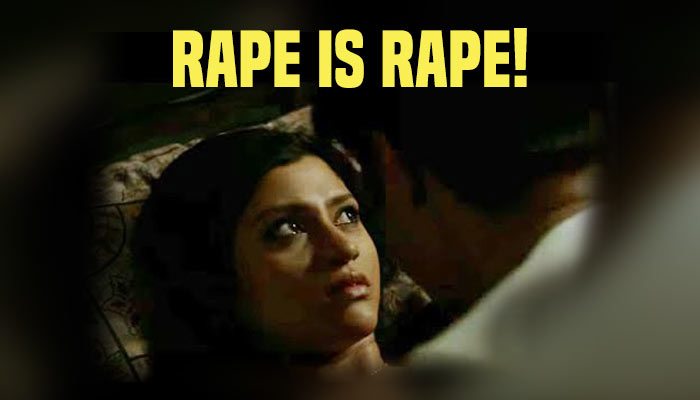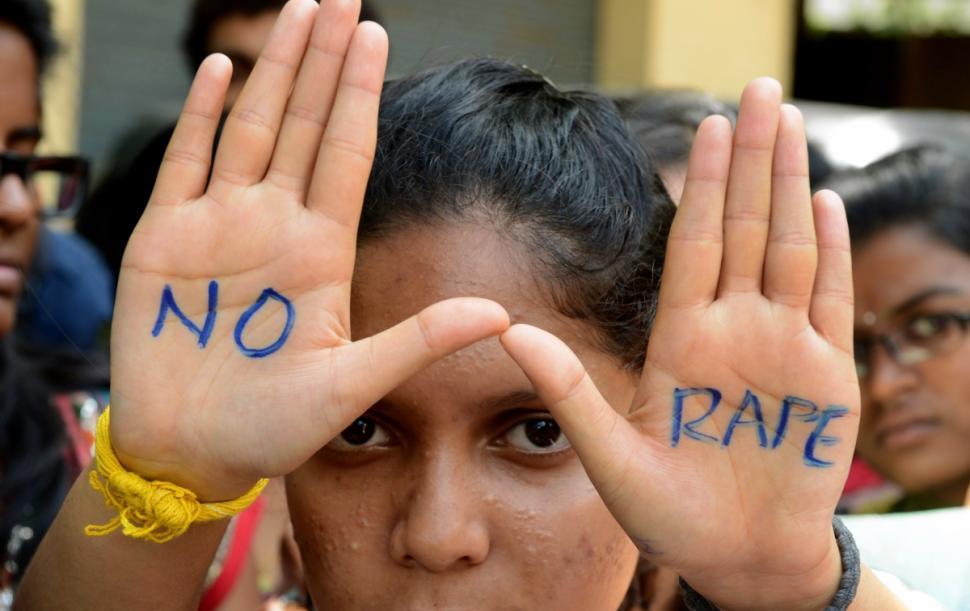You hear advertisements, movies and people screaming to the world that rape is rape, even within a marriage. But does our law hear this? No.

“Section 375” of the Indian Penal Code reinstates the legality of marital rape in India by listing marital rape as an exception to the crime of rape, stating that, sexual intercourse or sexual acts by a man with his own wife, the wife not being under fifteen years of age, is not rape.
Our law creates a legal fiction and assumes consent of the partner in a marital relationship, even when none is given. It literally says that even if one is raped by their partner within a marriage, the law is going to ignore such sexual violence because it deems it impossible.
In a very recent case, “Independent Thought v. The union of India”, the central government told the Supreme Court bench, of Justices Madan Lokur and Deepak Gupta, that it does not consider marital rape a crime. The case had sought to amend the law stating the discrepancy in the age of the wife as given under the exception with the actual age of majority in India, which is 18 years of age. What is even more disturbing is that all arguments against criminalization fall back against notions of tradition and our cultural values as against the violation of fundamental rights of individuals.
They seem to be saying that treating one’s wife as one would treat property, to do with as one wishes, is part of our Indian culture. Is that what our culture is meant to represent? I don’t know if that offends you, but it makes me boil with rage.
Yes, all violence within a marriage must be addressed. Yes, one cannot demarcate which kind of violence is more severe or which kind of violence deserves primary attention – because all violence does. The impact of each kind of violence differs with each survivor, and we need to increasingly address individual cases.
At the same time, asking for the criminalization of marital rape is not separating it from other violence that occurs within a marriage, it is understanding and accepting that sexual violence is also a kind of violence that can occur within a marriage. It is creating a legal possibility of acknowledgment of such violence. It is equipping one with a right against such violence.
Section 498A does provide for protection against cruelty, and we must ensure that it is upheld and strengthened, but it isn’t adequate to have that alone. How does one account for conflict of law if we aim to address marital rape under other legal provisions while the Indian Penal Code continues to consider it an explicit exception to rape? We need to avoid this conflict of law to reduce the judicial process involved in again determining the legal questions surrounding the criminality of marital rape. It is imperative that not only is the exception of marital rape to the act of rape removed from the Indian Penal Code but that marital rape is recognized as an aggravated form of rape.
It is true that marital rape does not occur in isolation of other violence, but having such laws to represent it strengthens the rights of the partner against whom the violence is being perpetrated. Such a law does not imply that marital rape is the only crime within a marriage that is worthy of stringent punishment, it in fact only implies that marital rape is also a crime that is punishable. That forced sex within marriage is not okay. That there is no duty-bound obligation between partners to have sex if they do not want to.
What having such a law also does is that it creates awareness and generates conversations. Law is never the only solution – it needs to be supported by comprehensive training for individuals and increased sensitization. But isn’t that true for almost every law? So why is it that most always focus on the education bit to be a primary means of intervention about sexual violence laws? Building both up collaboratively is of need.

In India, 94% of rapes are reportedly committed by someone the victim knows, and women are 40 times more likely to be assaulted by their husbands than by strangers. While the law alone can’t change that, it can serve as a starting point in the fight to reduce sexual violence within and outside of marital relationships.

Responses